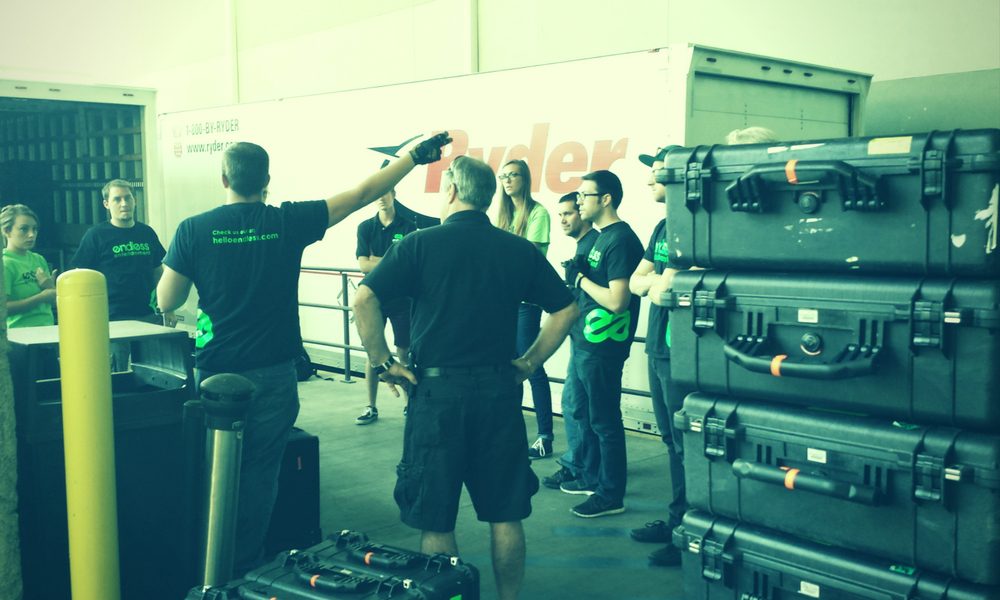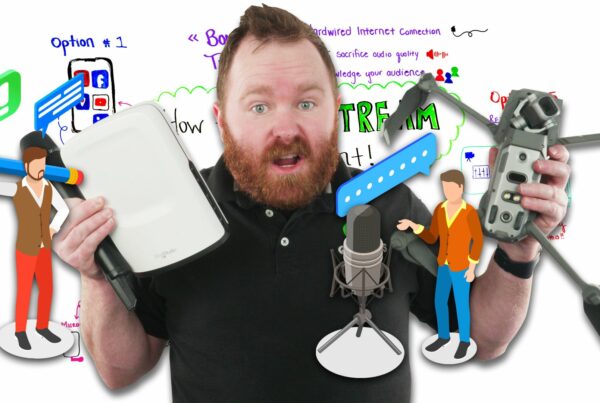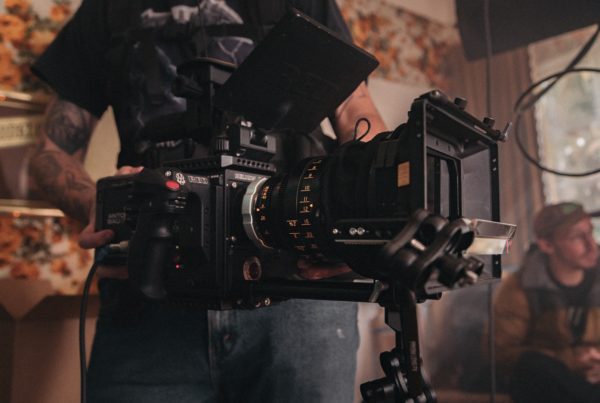Event AV is extremely complicated between all of your needs for lighting, sound, video, staging, and beyond. How would all of the complicated AV be set up if it wasn’t for Event AV labor? Labor can represent between 10% to 50% of your event AV budget depending on what you are doing. For this single large expense on your invoice, we wanted to share some of the concepts behind event AV labor, things to watch out, and ways you can get more for your labor dollar.
What on earth is ‘day-rate’?
When contracting an AV company you will see a variety of ways that the company has priced out its labor. Some charge you hourly for their technicians with a minimum, others have a flat ‘fee”, however the most common way an AV company will charge you is by a day rate or an equally confusing half-day-rate. By definition, a “day” in the event production world is 10 hours. So if you have an audio technician for a day-rate, they will be there for up to 10 hours. Half-day-rate is as simple as it sounds, it’s half of a day rate or 5 hours.
Typically, an AV company will bill you for the maximum time that they estimate the labor will take to accomplish your event. For example, if it takes 2 hours to setup your audio, then 4 hours to run it for the event, and then 2 hours for tear-down (for a total of 8 hours), the company will bill you for a day-rate. If the event is only an hour, and setup and teardown only take a total of 2 hours (for a total of 3 hours) they will charge you a half-day-rate. Now what happens if the setup is 5 hours, the event is 6 hours and teardown is 2 hours (total of 13 hours)? The AV company will more than likely bill you for a day and a half (1.5). Not that the increments will go up by halves. Sometimes just going over by 1 hour on a 10 hour day-rate will cause you to pay a 1.5 day-rate. Unfortunately, most companies are not forgiving when it comes to going over their scheduled times so trust the judgement of your quoter because if you want to try and squeeze a setup takes them 10 hours into 5 to save money, you won’t be able to do that.
Blasted! Minimums & overtime!
Something to keep in mind when budgeting for labor that is hourly is that even though they are hourly it doesn’t mean you can’t get around that similar concept to day-rate called ‘minimums’. Minimums require that the labor work for a certain minimum amount of time. For example, if you need to hire an AV tech to come set up one screen and projector and that’s it (let’s say 1 hour to setup), more than likely the company will charge you a 5 hour minimum. They do this to incentivize the AV labor employee to work the setup, because he’d normally get paid only 1 hour for that but he might have to drive all the way from the other side of town, park, clock-in, and then do it all over again until the event is over etc- and 1 hour of pay might not be worth it to him, but being promised 5 hours of pay for 1 hour of work will.
Something else to be cautious of as well is overtime. Overtime is going over 40 hours in a single pay period. By law companies have to pay employees one and a half times their hourly rate for any overtime, even if it’s just 1 hour over. This can get expensive quickly. For more large companies, they will avoid this by bringing in a different employee to finish the event after the first hits 40 hours. However, if you want to have the same technician for the entire event, be ready because they might charge you overtime. This is most common in multi-day corporate events and festivals.
What is travel rate?
You may also see travel rate on your quote. This is as simple as it sounds. This is the amount of time it takes that person to travel. If you are hiring labor outside of your local market, you may see this. You might think to yourself, why do I get charged for him to take a vacation or travel? Simply put, for a technician to take the time to travel means he is giving up opportunities locally to work. For example, the time it takes to travel, do the show and come back, he/she may have been able to do 2-3 events for the same pay. While all company’s travel rates may differ, the most common we see is half of their normal rate so if they normally charge 50 dollars an hour to be a technician, they will travel at 25 dollars per hour.
What is a per diem?
Speaking of travel, a common question we get is what is a per diem? A per diem covers the cost of food and other travel related expenses for out of town events (such as taxi’s, etc). Again if you are hiring an AV company outside of your market, you may see these costs. You may be wondering, “He’s getting paid, why am I paying for his food as well?”. Imagine you are traveling on business, wouldn’t you want your company to pay for your meals since if you were not traveling, you’d be eating at home and saving money? It’s the same concept. Typically they also incentivize more experience labor to work out of town events as well because many companies (and concert tours) pay per-diems.
Break me off a piece of that KitKat bar!
Often an overlooked area of event AV labor is the concept behind when they need breaks. Just like all human beings, AV technicians and labor need food and drink to function. Sometimes for events (especially the ones where setup is the same day as the event), they will be working 10-15 hours straight. Most companies will budget in their labor schedule time for them to get a break. However if your schedule is very tight, they might not have the luxury (we’ll be talking about nice things to do for your AV labor if this scenario ever pops up later). One thing to keep in mind is most union labor and some dedicated AV labor companies are actually REQUIRED to have breaks. So whether the schedule is tight, or not, the labor is contractually required to take a break. You’ll find some technicians during a crunch setup or a time when things are crazy at the event will choose to not take a break themselves even if they are required to have one because they care about the event so much, but keep in mind, they need their break eventually. Don’t work them to the bone!
Testing 1, 2, 3
Are you planning an event with an elaborate amount of cues, and is everything important for your show to happen right on time? Then you may be wanting to do a rehearsal. This is not a problem at all for the AV company, just be sure to let them know when they quote you out so they can include that in the labor budget. When a company budgets 5 hours for setup, don’t expect them to take an hour out of that for rehearsal, they need all the time they can get for setup instead they need to add additional time for that rehearsal. Schedule your rehearsals as close to when your AV labor will already be there. For example, if they say it’ll take 10 hours for setup. Let the AV company have an hour break, and then do the rehearsal. Is your event taking place the next day? Can the AV labor do the rehearsal before the event starts? This helps reduce travel back and forth between the venue.
Who’s my team?
When you get your quote confirmed and you’re getting close to your event, we recommend asking to be introduced to your team, especially your main contact. Use the time before the event to get to know your AV team because especially in those multi-day conferences, you’ll be spending a lot of time with them. AV companies want to treat you like a partner and friend! You’ll find when you connect with your AV team, they will be willing to bend backwards to make your vision come to life. Something to keep in mind also is if your event is booked a year out, the AV company might not know exactly who is working your event so an appropriate time to ask who your event staff will be is a month out from the event. Obviously with some larger shows and productions, the AV company will know your main contact earlier so they can get them into the loop on the conversation.
Speaking of main contacts, we have recently written a blog about the importance of needing a technical director/event manager. When it comes to your event, we highly recommend not talking directly to your technicians (not because they aren’t awesome people, they are amazing) but many times they are very very busy. At Endless, we require all of our events to have an event manager who oversees the entire AV crew and event so you have one point of contact. Your contact can communicate your needs into technical requirements for the technicians and this also allows the technicians to focus on the tech, and you have a dedicated person there for YOU! This is one of the best investments in AV labor you can make. To learn more about why you need an event manager, read our article.
All the small things (I think I already quoted that song once before)
In event AV, it’s about a lot of pieces of equipment coming together to make your awesome event happen. So the devil is in the details when it comes to event AV labor as well. Here’s some random tips to make your experience easier.
Feed your AV company – Yes, feed them. We find that feeding your AV company will actually save you money in the long run. First thing, if you feed them, it shows that you care and you know they are working hard. If you aren’t feeding them, the company may charge you a per diem or fee so the staff can eat (especially on longer events). We find that when you feed them, they don’t have time to think “I’m hungry, what do I want to eat?” so in the end, your AV company will work harder. Your AV company can get back to work faster, instead of having to walk 2 blocks to go get food, they can grab a sandwich and eat it as they continue to do all of their technical awesomeness.
Say hi at the beginning of setup – Take a few minutes to say hello to your staff who is working your event. You are paying their paycheck so you might as well see the team that is putting everything together. A lot of times the people setting everything up will also be the ones running the event so in the case that you need something (or vice versa) you know who they are. Yes, technicians are humans too!
Notice when they work late – I have seen technicians clock out when their shift is over, and stay late into the night (sometimes 4am) programming lighting, setting up video effects, tuning audio and more. Most of the time the AV company will put the times when the labor is working on their quote so if you see someone working later than scheduled, go stop by and see if they need anything. Most people don’t notice when the lighting technician decides to volunteer his time to make sure the show looks just perfect for you. I promise you that if you thank that person for staying late, they will be the first person to work the show the next year when hopefully you come back as a return customer. Wouldn’t it be great to have consistently great labor?
Know the difference between subcontracted and in-house labor – Sometimes to increase the staff to pull off a big event a company must subcontract labor from another company or non-employees. This is very understandable, however, something to be aware of is when a company’s labor is COMPLETELY subcontracted and are not W-2 employees. Typically these people work for 3-4 other companies and not just the company you are hiring. This can be very “dangerous”. At Endless, we moved all of our staff to in-house employees and all of our staff only work for Endless. This is important to us because we want all of our employees to match our awesome culture and believe in our mission to create the equation for the client. I always say “How can you expect a subcontractor to believe in the vision of your event if they don’t even know what the vision of the company they are working for?”
That’s it for our guide to event AV labor! Phew, that was a lot of information and we hope it was very helpful. We hope it helps you maximize your event AV labor, get your money’s worth, and not be confused by the industry terminology.










